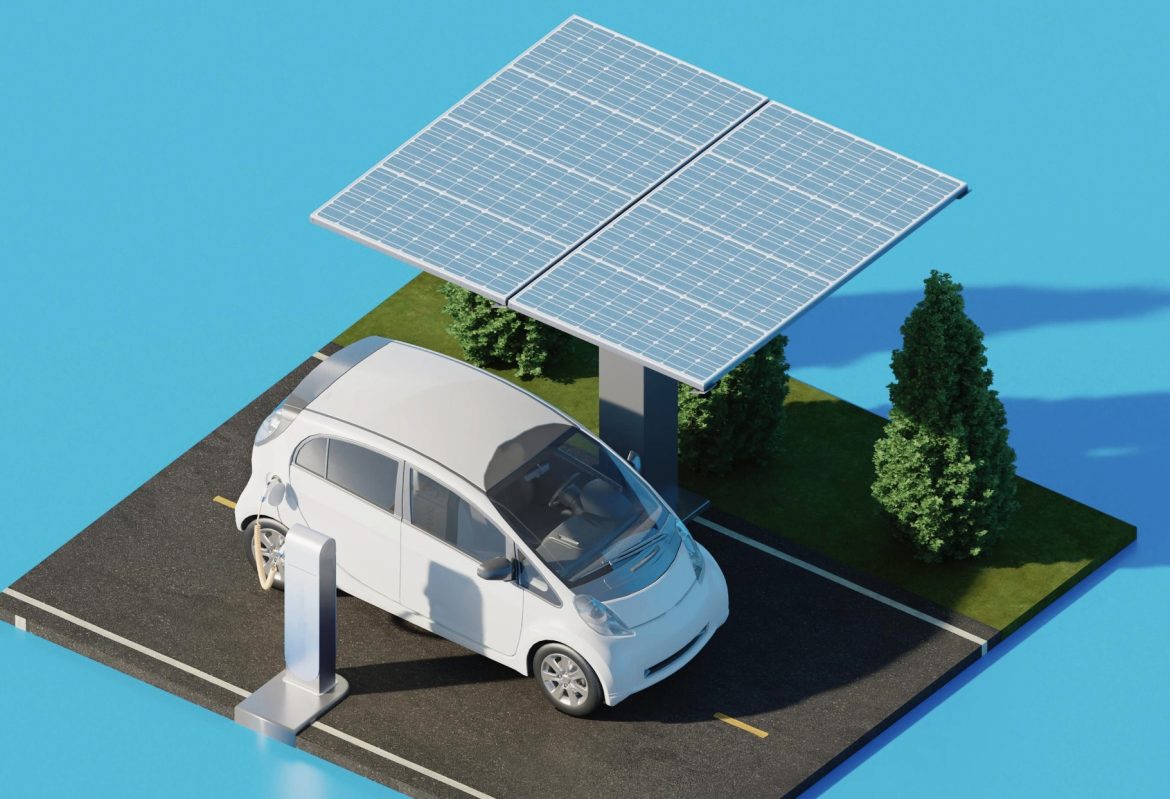KEY POINTS
- Nigeria aims for carbon neutrality by 2060 through e-mobility initiatives.
- Off-grid EV charging and electric buses offer viable solutions for public transport.
- Clear policies and consumer awareness are crucial for Nigeria’s e-mobility growth.
A recent report, A Vision for E-Mobility in Nigeria, co-authored by RMI and Nigeria’s Energy Transition Office (ETO), outlines the opportunities, challenges, and future path for the country’s EV industry.
Nigeria aims to achieve carbon neutrality by 2060. This goal was set in 2021.
The Energy Transition Plan (ETP) provides a roadmap for achieving this. It focuses on initiatives such as deploying electric four-wheelers, shifting from passenger cars to public transportation, introducing electric two- and three-wheelers, expanding EV charging infrastructure, and setting EV manufacturing targets.
“These efforts have the potential to create economic opportunities and improve environmental outcomes nationwide,” the report states.
The report also added that “several EV adoption and charging infrastructure projects have already been launched in response to national-level commitments to transform Nigeria’s transportation sector.”
Key initiatives in Nigeria’s EV sector
These projects include electric bus deployments in Lagos and the establishment of 100% solar-powered charging stations through the National Automotive Design and Development Council’s collaboration with universities.
However, despite enthusiasm for developing Nigeria’s EV sector, challenges remain.
“Achieving Nigeria’s vision of a cleaner and more efficient transportation sector requires coordinated efforts,” the report emphasizes.
Off-Grid charging and e-bus potential
According to Kelly Carlin, Manager of RMI’s Carbon-Free Transportation Programme, Nigeria’s limited electricity generation and access deficits make off-grid EV charging stations a viable solution.
“The widespread adoption of EVs in Nigeria and other markets with unreliable grids depends on identifying and testing charging models that can work off-grid or provide reliable power independently,” Carlin told ESI Africa.
Carlin highlighted the success of solar-powered, off-grid EV charging in Nigeria’s Gbamu Gbamu community in Ogun State. She also noted the potential for battery-swapping to scale commercially in Nigeria, as seen in other markets.
Nigeria should prioritize electric buses (e-buses) in its public transport system, alongside two- and three-wheel electric vehicles, Carlin said.
“E-buses require larger charging depots and unique business models, but they have shown they can save money and reduce urban air pollution in other markets across sub-Saharan Africa and South Asia,” she explained.
In June, Oando Clean Energy Limited, in partnership with the Lagos Metropolitan Area Transport Authority (LAMATA), launched an initiative introducing electric buses to LAMATA’s fleet as part of a carbon-free mobility ecosystem in Lagos.
Similarly, Ogun State launched an e-mobility program in November to replace petrol-powered motorcycles and tricycles with electric alternatives.
Economic and policy considerations for Nigeria’s EV future
Nigeria, as a leading fossil fuel producer and home to the Africa Energy Bank, may face delays in adopting EVs. However, Carlin noted that the country stands to benefit economically from e-mobility.
“Prioritizing e-mobility can lead to cost savings for Nigerian households and drive economic growth,” he said.
With the world rapidly transitioning to EVs, Carlin emphasized that Nigeria should build its transportation electrification infrastructure now to position itself as a sub-Saharan manufacturing hub by 2040 or 2050. “Nigeria has the right to develop its resources, including solar energy while balancing its fossil fuel goals with its energy transition plans.”
Policy and consumer awareness for EV growth
Carlin emphasized the need for clear and predictable regulatory policies to attract investors and manufacturers to Nigeria’s EV sector.
“While Nigeria has started with policies like VAT exemptions for imported EVs, there’s more to be done to improve policy implementation and support the sector’s growth.”
Nigeria should also consider the value chain for local electric vehicle (EV) production.
“In addition to encouraging the import of EVs and parts, Nigeria’s initial opportunity is to onshore the last link of the supply chain, with policies that support local partial-knockdown manufacturing,” said Carlin.
“From there, a successful plan for the EV sector should look ahead and gradually increase requirements for locally produced parts.
“Nigeria needs a clear strategy that aligns with the country’s workforce, charging infrastructure development, and national priorities.”
As reported by ESI Africa, Carlin also said there is a “tremendous opportunity” to boost consumer awareness of EV benefits.
This includes the potential for cost savings, as well as educating consumers about the variety of EVs available in Nigeria and how they charge.
“It’s important for consumers to understand EVs are an option for transportation and to ensure they have the information needed to make the best choice.
“The affordability of EVs depends heavily on available financing, which is currently limited in Nigeria. The government, industry, and donor partners can take steps to de-risk EV financing — actions that would make EVs more affordable for consumers,” Carlin said.



